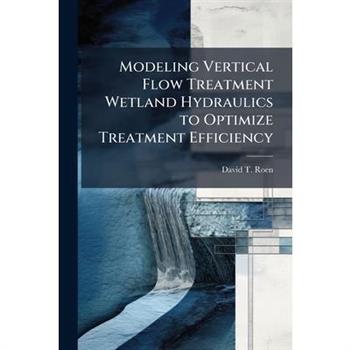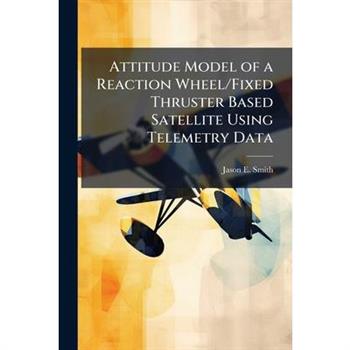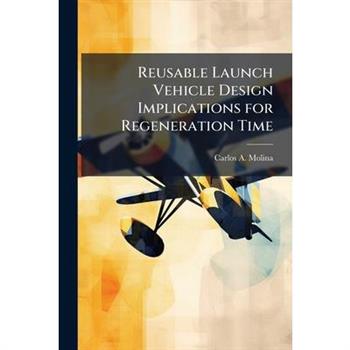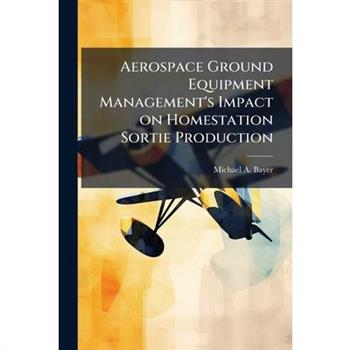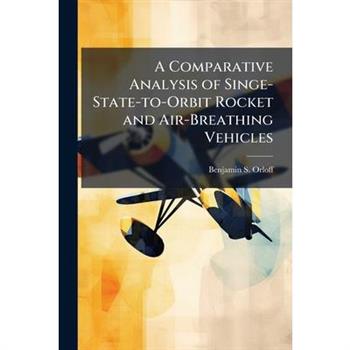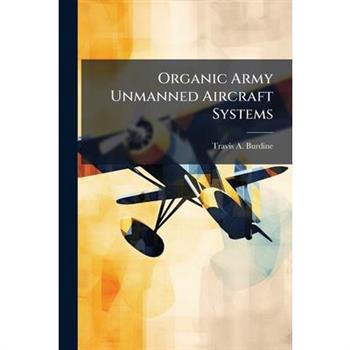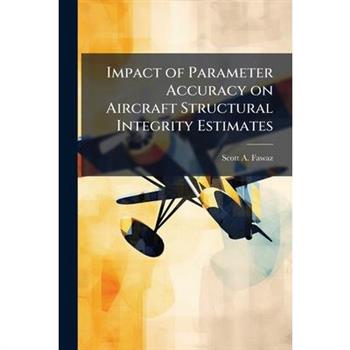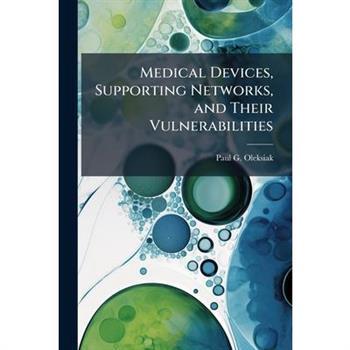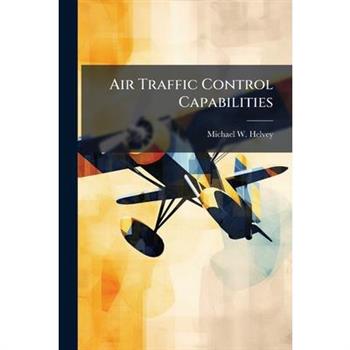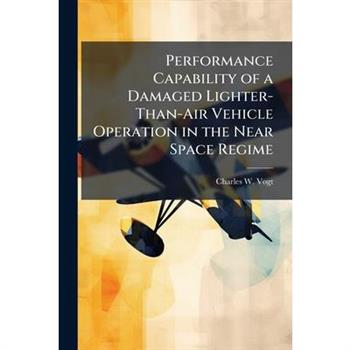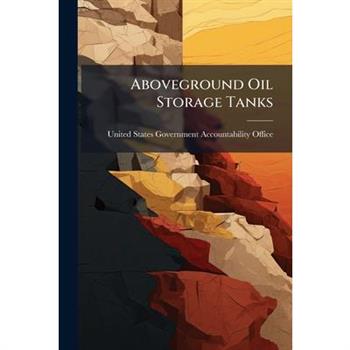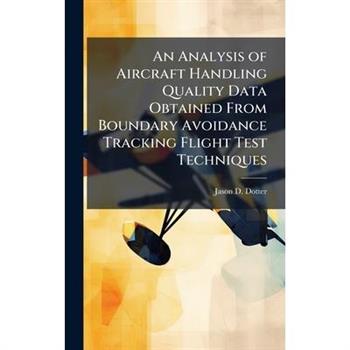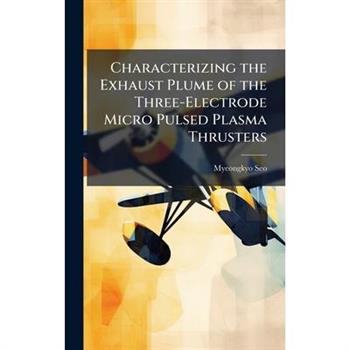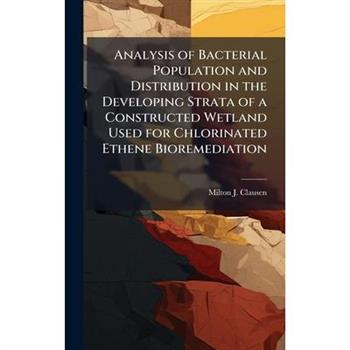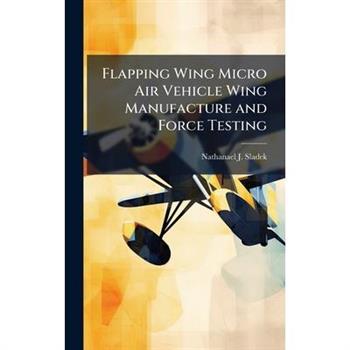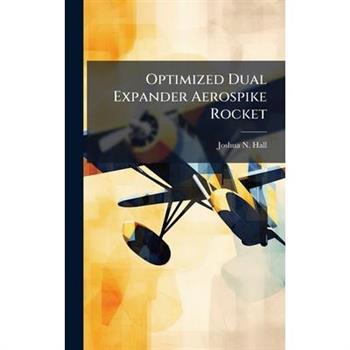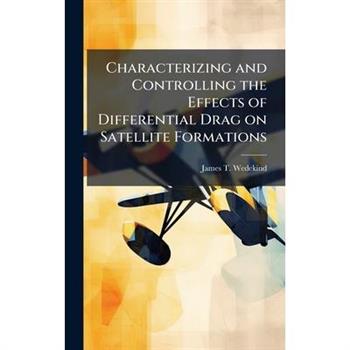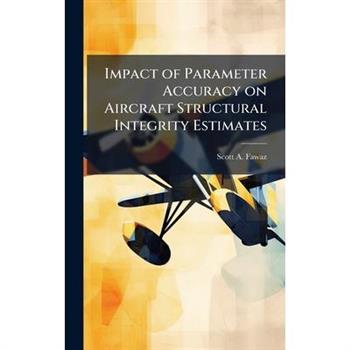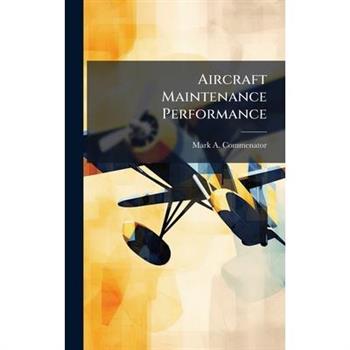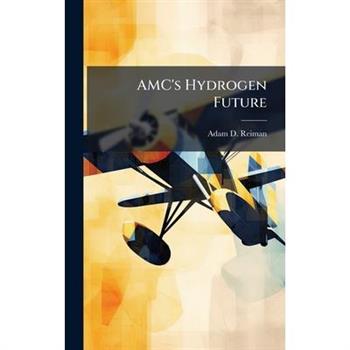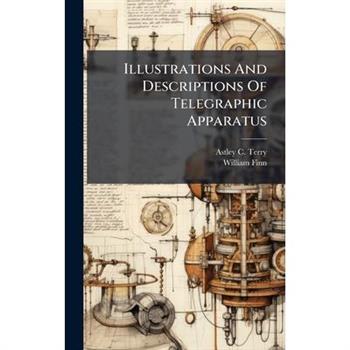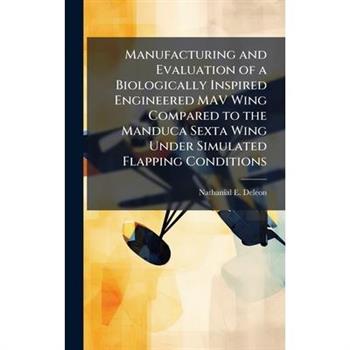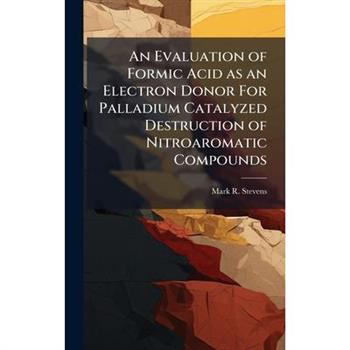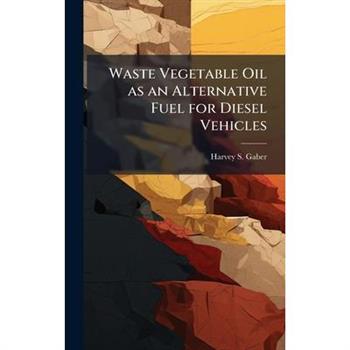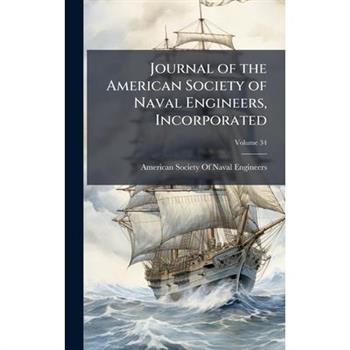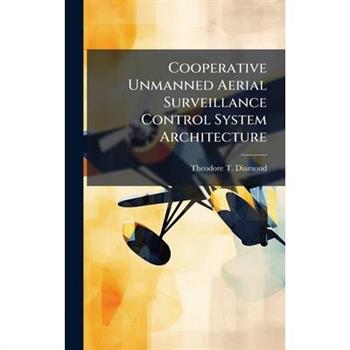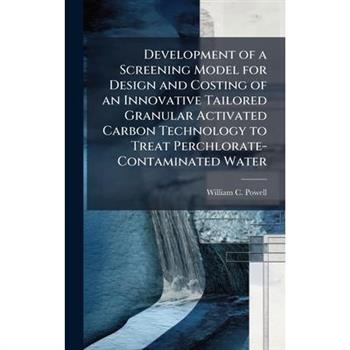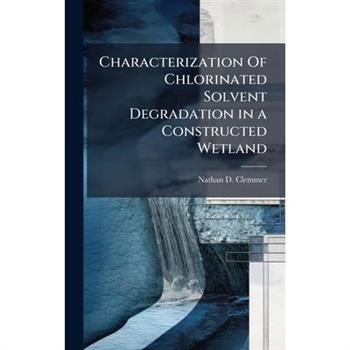Transforming the Aircraft Inspection Process
The next five years promise to bring significant changes to the Air Force's current operating environment. This change is prompted by several budget initiatives to provide funds for vital programs that include recapitalizing the growing inventory of aging aircraft. Some of these initiatives target manpower billets in specific areas across the Active, Reserve, and Guard forces with a projected goal of reducing full-time equivalent positions by approximately 40,000. One initiative, released as Programmed Budget Decision (PBD) 716 in December 2005, directs the offsets to be fully executed by the end of FY11 across most Air Force Specialty Codes (AFSCs) to minimize huge losses in a few areas. Within the past year, the period to complete the offsets has been accelerated to end of FY09.This work has been selected by scholars as being culturally important, and is part of the knowledge base of civilization as we know it. This work was reproduced from the original artifact, and remains as true to the original work as possible. Therefore, you will see the original copyright references, library stamps (as most of these works have been housed in our most important libraries around the world), and other notations in the work.This work is in the public domain in the United States of America, and possibly other nations. Within the United States, you may freely copy and distribute this work, as no entity (individual or corporate) has a copyright on the body of the work.As a reproduction of a historical artifact, this work may contain missing or blurred pages, poor pictures, errant marks, etc. Scholars believe, and we concur, that this work is important enough to be preserved, reproduced, and made generally available to the public. We appreciate your support of the preservation process, and thank you for being an important part of keeping this knowledge alive and relevant.
Modeling Vertical Flow Treatment Wetland Hydraulics to Optimize Treatment Efficiency
An upward Vertical Flow Treatment Wetland (uVFTW) at Wright Patterson AFB designed to bioremediate contaminated groundwater exhibits hydraulic short-circuiting. Prior studies estimated that groundwater flowed through less than 50% of the wetland's volume, and that the mean residence time was significantly less than the nominal residence time, which was calculated assuming flow through the entire wetland volume. The objective of this research was to investigate how uVFTW hydraulics affects treatment efficiency, and to propose design strategies to maximize treatment efficiency. A groundwater flow and contaminant transport model of a uVFTW that couples hydraulics and degradation kinetics was built and applied to estimate the effectiveness of engineering solutions aimed at improving treatment efficiency. Model simulations indicate that the engineering solutions improve hydraulic residence times, volumetric utilization, and treatment efficiency over the existing wetland, but also that increasing hydraulic residence time only has a significant impact on treatment efficiency when the time scale for the biodegradation process is similar to the wetland residence time. Degradation kinetics must be quantitatively understood to determine an optimum range for hydraulic residence time, and to ensure that resources are not wasted in an attempt to improve hydraulic performance where no improvement in degradation performance is possible.This work has been selected by scholars as being culturally important, and is part of the knowledge base of civilization as we know it. This work was reproduced from the original artifact, and remains as true to the original work as possible. Therefore, you will see the original copyright references, library stamps (as most of these works have been housed in our most important libraries around the world), and other notations in the work.This work is in the public domain in the United States of America, and possibly other nations. Within the United States, you may freely copy and distribute this work, as no entity (individual or corporate) has a copyright on the body of the work.As a reproduction of a historical artifact, this work may contain missing or blurred pages, poor pictures, errant marks, etc. Scholars believe, and we concur, that this work is important enough to be preserved, reproduced, and made generally available to the public. We appreciate your support of the preservation process, and thank you for being an important part of keeping this knowledge alive and relevant.
High Altitude Airship Station-Keeping Analysis
Lighter-than-air vehicles were once widely utilized by most major militaries. The airship's extended range and flight endurance made them the optimal vehicle for surveillance and reconnaissance. These flight characteristics have created new interest in using lighter-than-air vehicles as high altitude surveillance and communications platforms. Future Department of Defense plans include high altitude airships that will operate at near space altitudes and take advantage of the low wind region in the upper atmosphere located at approximately 24 km. A high altitude airship could provide 24- hour coverage of a target area if operated in this low wind region. This study investigated the station-keeping abilities of two such high altitude airships: a large/fast design (AS #1) and a smaller/slower design (AS #2). The two baseline airship designs were subjected to the same simulated yearlong station-keeping mission using realistic upper atmospheric wind data over the designated target of Baghdad. Actual wind data was generated by the Navy's Fleet Numerical METOC Detachment and used to model the movements of both baseline airships. Their station-keeping capacity was determined by the duration of time each vehicle spent inside the targets coverage radius (552 km). The AS #1 design remained inside the operational radius for 87.67% of the year and the AS #2 design was only operational for 39.45% of the year. Neither airship maintained its station for the entire yearlong mission. This study concluded that advancements are required in propulsion or power production to decrease the size of the airship designs and increase the vehicles maximum velocity in order to counter the upper atmospheric winds.This work has been selected by scholars as being culturally important, and is part of the knowledge base of civilization as we know it. This work was reproduced from the original artifact, and remains as true to the original work as possible. Therefore, you will see the original copyright references, library stamps (as most of these works have been housed in our most important libraries around the world), and other notations in the work.This work is in the public domain in the United States of America, and possibly other nations. Within the United States, you may freely copy and distribute this work, as no entity (individual or corporate) has a copyright on the body of the work.As a reproduction of a historical artifact, this work may contain missing or blurred pages, poor pictures, errant marks, etc. Scholars believe, and we concur, that this work is important enough to be preserved, reproduced, and made generally available to the public. We appreciate your support of the preservation process, and thank you for being an important part of keeping this knowledge alive and relevant.
Attitude Model of a Reaction Wheel/Fixed Thruster Based Satellite Using Telemetry Data
Attitude determination of satellites is normally the job of inertial instruments, such as gyroscopes, or through sensing instruments, such as star trackers orGlobal Positioning Satellites (GPS). Satellite health monitoring systems watch and determine if the satellite deviates from its normal operating attitudeorientation. Knowing the orientation of a satellite is essential in being able to control it in order to complete the satellite's designated mission. While there area multitude of ways to determine a satellite's orientation, very little research has been done on determining if the attitude of a satellite can be determineddirectly from telemetry data of the attitude control systems and an accurate spacecraft model. The fidelity of a satellite attitude determination model requiredto get reasonable predictions from using only telemetry data of the attitude controllers, such as thruster on/off indicators and reaction wheel rotor speeds, isinvestigated. Experimental tests using telemetry data received from the Air Force Institute of Technology's (AFIT) Simulated Satellite, SimSat, is used inverifying a Matlab model which outputs SimSat's orientation from SimSat's reaction wheel and thruster telemetry data. Software modeling results showed thatit is possible to determine a satellite's attitude from only the attitude controllers' telemetry data when the satellite's dynamic model is known.This work has been selected by scholars as being culturally important, and is part of the knowledge base of civilization as we know it. This work was reproduced from the original artifact, and remains as true to the original work as possible. Therefore, you will see the original copyright references, library stamps (as most of these works have been housed in our most important libraries around the world), and other notations in the work.This work is in the public domain in the United States of America, and possibly other nations. Within the United States, you may freely copy and distribute this work, as no entity (individual or corporate) has a copyright on the body of the work.As a reproduction of a historical artifact, this work may contain missing or blurred pages, poor pictures, errant marks, etc. Scholars believe, and we concur, that this work is important enough to be preserved, reproduced, and made generally available to the public. We appreciate your support of the preservation process, and thank you for being an important part of keeping this knowledge alive and relevant.
Reusable Launch Vehicle Design Implications for Regeneration Time
In last few years the Air Force Research Laboratory sponsored several research projects on Reusable Launch Vehicles (RLV) whose design, operation, and logistics requirements are intended to be much simpler than the Space Shuttle. Previous researchers developed a model that simulated the post-landing, ground maintenance and prelaunch operations of a RLV in order to evaluate how its design parameters affect the logistics operations. However, the next step was to investigate the effects and interactions of all the factors used in the existing simulation model in a single experiment that deals with the huge number of possible design characteristics' combinations discovered in previous studies and varying resources like manpower, ground support equipment and facilities. The goal of this research is to recommend to the AFRL a preferred design strategy that could minimize the resource requirements in terms of equipment and manpower as well as turnaround time of logistics operations.This work has been selected by scholars as being culturally important, and is part of the knowledge base of civilization as we know it. This work was reproduced from the original artifact, and remains as true to the original work as possible. Therefore, you will see the original copyright references, library stamps (as most of these works have been housed in our most important libraries around the world), and other notations in the work.This work is in the public domain in the United States of America, and possibly other nations. Within the United States, you may freely copy and distribute this work, as no entity (individual or corporate) has a copyright on the body of the work.As a reproduction of a historical artifact, this work may contain missing or blurred pages, poor pictures, errant marks, etc. Scholars believe, and we concur, that this work is important enough to be preserved, reproduced, and made generally available to the public. We appreciate your support of the preservation process, and thank you for being an important part of keeping this knowledge alive and relevant.
Aerospace Ground Equipment Management's Impact on Homestation Sortie Production
Since the Air Force began its evolution into an Expeditionary Air Force, much effort has been expended in attempt to optimize the compositions of each Air Expeditionary Force (AEF) and the manner in which an AEF deploys. Air Force plans were previously based upon deploying 24-ship Unit Type Codes (UTC), although a 12-ship deployment is more prevalent in today's environment. In an effort to eliminate the anomalies between planned and actual deployment composition, the Air Staff directed in 2002 that all fighter UTCs be right-sized to reflect current, planned requirements (Headquarters United States Air Force, 2002). The directive stipulated the development of UTCs in a building block fashion so that a squadron would be poised to deploy one lead package of aircraft, with potential follow-on packages.This work has been selected by scholars as being culturally important, and is part of the knowledge base of civilization as we know it. This work was reproduced from the original artifact, and remains as true to the original work as possible. Therefore, you will see the original copyright references, library stamps (as most of these works have been housed in our most important libraries around the world), and other notations in the work.This work is in the public domain in the United States of America, and possibly other nations. Within the United States, you may freely copy and distribute this work, as no entity (individual or corporate) has a copyright on the body of the work.As a reproduction of a historical artifact, this work may contain missing or blurred pages, poor pictures, errant marks, etc. Scholars believe, and we concur, that this work is important enough to be preserved, reproduced, and made generally available to the public. We appreciate your support of the preservation process, and thank you for being an important part of keeping this knowledge alive and relevant.
A Comparative Analysis of Singe-State-to-Orbit Rocket and Air-Breathing Vehicles
This study compares and contrasts the performance of a variety of rocket and airbreathing, single-stage-to-orbit, reusable launch vehicles. Fuels considered include bi-propellant and tri-propellant combinations of hydrogen and hydrocarbon fuels. Astrox Corporation's HySIDE code was used to model the vehicles and predict their characteristics and performance. Vehicle empty mass, wetted area and growth rates were used as figures of merit to predict the total cost trends of a vehicle system as well as the system's practicality. Results were compared to those of two-stage-to-orbit reusable launch systems using similar modeling methods. The study found that single-stage-to-orbit vehicles using scramjet airbreathing propulsion outperform rocket systems. Findings also demonstrate the benefits of using hydrocarbon fuel in the early phases of ascent to reduce the size and mass of launch vehicles.This work has been selected by scholars as being culturally important, and is part of the knowledge base of civilization as we know it. This work was reproduced from the original artifact, and remains as true to the original work as possible. Therefore, you will see the original copyright references, library stamps (as most of these works have been housed in our most important libraries around the world), and other notations in the work.This work is in the public domain in the United States of America, and possibly other nations. Within the United States, you may freely copy and distribute this work, as no entity (individual or corporate) has a copyright on the body of the work.As a reproduction of a historical artifact, this work may contain missing or blurred pages, poor pictures, errant marks, etc. Scholars believe, and we concur, that this work is important enough to be preserved, reproduced, and made generally available to the public. We appreciate your support of the preservation process, and thank you for being an important part of keeping this knowledge alive and relevant.
Organic Army Unmanned Aircraft Systems
Although Unmanned Aircraft Systems (UASs) are proliferating in the joint operational environment at an astonishing rate, they are meeting only a fraction of the demand. The USAF's failure to meet this insatiable demand for armed intelligence, surveillance, and reconnaissance (ISR) caused the Army to develop their own "organic" UAS capability. Does it make sense to spend $1.02B to create an aircraft capable of ranging the entire joint operations area, yet control it at the Army division level? This paper argues it is not in the best interest of the joint fight and it recommends alternative solutions for the Army's integration of "theater-capable" UASs. The research paper analyzes five contentious issues in a problem-solution format based on the USAF's MQ-1B Predator and the Army's planned MQ-1C Sky Warrior unmanned systems. The five issues include centralized versus organic control, rated pilots versus operators, airspace control methods, service interdependence, and deployment footprint. This research paper paints a picture of the current environment by looking at the situation from both the USAF and Army perspectives. This situation is not conducive to effective joint operations, and it will continue to deteriorate as the Army brings high altitude UASs online. This paper finds that the Army's decentralized, low altitude system composed primarily of rotary-wing assets historically coexisted underneath the Air Force's centrally controlled fixed-wing system. But the addition of more capable UASs, like Sky Warrior, brought the Army system up into the USAF system--where the two systems are no longer capable of providing an environment conducive to joint operations.This work has been selected by scholars as being culturally important, and is part of the knowledge base of civilization as we know it. This work was reproduced from the original artifact, and remains as true to the original work as possible. Therefore, you will see the original copyright references, library stamps (as most of these works have been housed in our most important libraries around the world), and other notations in the work.This work is in the public domain in the United States of America, and possibly other nations. Within the United States, you may freely copy and distribute this work, as no entity (individual or corporate) has a copyright on the body of the work.As a reproduction of a historical artifact, this work may contain missing or blurred pages, poor pictures, errant marks, etc. Scholars believe, and we concur, that this work is important enough to be preserved, reproduced, and made generally available to the public. We appreciate your support of the preservation process, and thank you for being an important part of keeping this knowledge alive and relevant.
Impact of Parameter Accuracy on Aircraft Structural Integrity Estimates
The USAF initiated the Aircraft Structural Integrity Program (ASIP) over 40 years ago because of catastrophic, unanticipated, in-flight fatigue failures of in-service aircraft. In essence, ASIP is the management tool for the USAF to safely manage the fleet from initial operating capability through the design service goal and beyond. Since ASIP's inception, the USAF has not had a single catastrophic structural failure. The primary analysis tool to determine the fatigue life of a structural component in ASIP is linear elastic fracture mechanics (LEFM). In this effort, nine LEFM parameters were identified that affect the fatigue life: initial flaw assumption, boundary correction factor, load interaction models, crack growth rate data, stress intensity factor, threshold stress intensity factor, yield stress, and critical stress intensity factor.This work has been selected by scholars as being culturally important, and is part of the knowledge base of civilization as we know it. This work was reproduced from the original artifact, and remains as true to the original work as possible. Therefore, you will see the original copyright references, library stamps (as most of these works have been housed in our most important libraries around the world), and other notations in the work.This work is in the public domain in the United States of America, and possibly other nations. Within the United States, you may freely copy and distribute this work, as no entity (individual or corporate) has a copyright on the body of the work.As a reproduction of a historical artifact, this work may contain missing or blurred pages, poor pictures, errant marks, etc. Scholars believe, and we concur, that this work is important enough to be preserved, reproduced, and made generally available to the public. We appreciate your support of the preservation process, and thank you for being an important part of keeping this knowledge alive and relevant.
Medical Devices, Supporting Networks, and Their Vulnerabilities
With the implementation of "one Air Force, one network" under way it is important to look at how the Air Force plans to incorporate the medical field and its unique systems, networks, and mission. The medical field presents distinctive problems not seen in other areas. Open network vulnerabilities in the medical information systems not only pose a problem for the individual, but to the military service also. Possible security holes provide both access to vital military and personal information (end strength numbers, current status of personnel, social security), and a door way into the "network". Intruders now can possibly access command and control systems and other weapon systems. This research provides insight into the current and future information initiatives dealing with the Air Force's medical field and the Department of Defense's approach to system security. This research additionally looks at the laws and regulations dealing with privacy and ethical issues. This purview starts with the recently enacted Healthcare Insurance Portability and Accountability ACT (HIPPA), and concludes with the Laws of Armed Conflict. The research questions were answered through the use of a Case Study and a comprehensive literature review. The medical and network support teams from two Air Force medical facilities were the basis of this study.This work has been selected by scholars as being culturally important, and is part of the knowledge base of civilization as we know it. This work was reproduced from the original artifact, and remains as true to the original work as possible. Therefore, you will see the original copyright references, library stamps (as most of these works have been housed in our most important libraries around the world), and other notations in the work.This work is in the public domain in the United States of America, and possibly other nations. Within the United States, you may freely copy and distribute this work, as no entity (individual or corporate) has a copyright on the body of the work.As a reproduction of a historical artifact, this work may contain missing or blurred pages, poor pictures, errant marks, etc. Scholars believe, and we concur, that this work is important enough to be preserved, reproduced, and made generally available to the public. We appreciate your support of the preservation process, and thank you for being an important part of keeping this knowledge alive and relevant.
Air Traffic Control Capabilities
New world-wide requirements to equip aircraft for ADS-B surveillance systems provides an opportunity for the USAF to develop and field a lower-cost, more accurate, and integrated Air Traffic Control and Command and Control system. Such a system would improve command and control in military, civilian, and joint civ/mil environments, particularly in areas not suitable for traditional radar operations due to infrastructure, security, or terrain.This work has been selected by scholars as being culturally important, and is part of the knowledge base of civilization as we know it. This work was reproduced from the original artifact, and remains as true to the original work as possible. Therefore, you will see the original copyright references, library stamps (as most of these works have been housed in our most important libraries around the world), and other notations in the work.This work is in the public domain in the United States of America, and possibly other nations. Within the United States, you may freely copy and distribute this work, as no entity (individual or corporate) has a copyright on the body of the work.As a reproduction of a historical artifact, this work may contain missing or blurred pages, poor pictures, errant marks, etc. Scholars believe, and we concur, that this work is important enough to be preserved, reproduced, and made generally available to the public. We appreciate your support of the preservation process, and thank you for being an important part of keeping this knowledge alive and relevant.
Building a Better Aircraft Maintenance Officer
Several changes have occurred in the maintenance operating environment and in aircraft maintenance officer training and development activities since the last known academic review in 2002.1 Chief among them are the reorganization of the wing structure into the Combat Wing Organization; creation of the 21AX Career Field Education and Training Plan (CFETP), the Maintenance Officer Intermediate Course (MOIC), and the Advanced Maintenance and Munitions Officer's School (AMMOS); as well as the introduction of the 21A/M Developmental Team (DT). In addition, several changes in the national security environment, including the DoD basing structure and the type of wars we fight, continue to shape the maintenance environment.This work has been selected by scholars as being culturally important, and is part of the knowledge base of civilization as we know it. This work was reproduced from the original artifact, and remains as true to the original work as possible. Therefore, you will see the original copyright references, library stamps (as most of these works have been housed in our most important libraries around the world), and other notations in the work.This work is in the public domain in the United States of America, and possibly other nations. Within the United States, you may freely copy and distribute this work, as no entity (individual or corporate) has a copyright on the body of the work.As a reproduction of a historical artifact, this work may contain missing or blurred pages, poor pictures, errant marks, etc. Scholars believe, and we concur, that this work is important enough to be preserved, reproduced, and made generally available to the public. We appreciate your support of the preservation process, and thank you for being an important part of keeping this knowledge alive and relevant.
Piloting the USAF's UAV Fleet
The primary objective of this research project was to examine the four most frequently proposed alternatives for staffing current and future Air Force UAVs designed to operate within the manned airspace environment: rated officers, non-rated officers, enlisted, and contractors. This study examined three major issues, airspace integration, operational employment, and Air Force cultural considerations for each of the alternatives. A review of Air Force UAV operator experience was initially identified followed by an evaluation of projected potential future UAV capabilities and their impact on staffing considerations. The objective findings derived from an Air Force Research Laboratory (AFRL) survey concluded that it was feasible to train any of these alternative populations to operate at least the only current UAV system in this category, the Predator. Unfortunately, there was insufficient data to extrapolate these findings to future systems. In addition, the AFRL was unable to determine specific training programs for these various options. However, perhaps more important than the physical abilities simply to operate the vehicle is the comprehensive requirements to successfully employ them as weapon systems. In addition, there are the internal and external organizational considerations. These UAVs represent an entirely new category of vehicles in the national and international airspace structure. They also represent a potential shift in who projects conventional combat power within the Air Force. Because of these major issues, this paper concludes that for the foreseeable future, pilots should operate this category of UAVs for the United States Air Force. Although this study placed considerable emphasis on the Predator system, the analysis also was intended to apply to future UAV systems operating within the manned controlled airspace.This work has been selected by scholars as being culturally important, and is part of the knowledge base of civilization as we know it. This work was reproduced from the original artifact, and remains as true to the original work as possible. Therefore, you will see the original copyright references, library stamps (as most of these works have been housed in our most important libraries around the world), and other notations in the work.This work is in the public domain in the United States of America, and possibly other nations. Within the United States, you may freely copy and distribute this work, as no entity (individual or corporate) has a copyright on the body of the work.As a reproduction of a historical artifact, this work may contain missing or blurred pages, poor pictures, errant marks, etc. Scholars believe, and we concur, that this work is important enough to be preserved, reproduced, and made generally available to the public. We appreciate your support of the preservation process, and thank you for being an important part of keeping this knowledge alive and relevant.
Performance Capability of a Damaged Lighter-Than-Air Vehicle Operation in the Near Space Regime
This study investigates the ability of a high-altitude airship to maintain lift following the compromise of its lifting gas envelope. Accepted engineering principles are applied to develop a model that provides comparative analyses for airship depressurization alternatives following hull compromise. Specifically, maintaining lifting gas envelope overpressure to provide controllability in wind currents while sacrificing some buoyancy is compared with allowing envelope depressurization to occur with the goal of maintaining greater buoyancy as long as possible. The model provides insights to alternatives for recovering a damaged vehicle and its payload. In particular, the analysis demonstrates that maintaining the ability to navigate while forfeiting buoyancy can provide additional down-range maneuver capability. In some cases preserving the airship's hull overpressure for some period of time following compromise, vice allowing a slow depressurization to atmospheric equilibrium, extends the distance a damaged airship can sustain controlled navigation as much as eighty percent. However, the airship will forfeit nearly twenty percent of the altitude it would otherwise preserve by not forcing a constant hull overpressure.This work has been selected by scholars as being culturally important, and is part of the knowledge base of civilization as we know it. This work was reproduced from the original artifact, and remains as true to the original work as possible. Therefore, you will see the original copyright references, library stamps (as most of these works have been housed in our most important libraries around the world), and other notations in the work.This work is in the public domain in the United States of America, and possibly other nations. Within the United States, you may freely copy and distribute this work, as no entity (individual or corporate) has a copyright on the body of the work.As a reproduction of a historical artifact, this work may contain missing or blurred pages, poor pictures, errant marks, etc. Scholars believe, and we concur, that this work is important enough to be preserved, reproduced, and made generally available to the public. We appreciate your support of the preservation process, and thank you for being an important part of keeping this knowledge alive and relevant.
Can You Create the Universal Pilot for the Universal Aircraft
Traditionally, fighter aircraft training has focused on exploiting the capabilities in the missions each fighter was designed for. Though multi-role aircraft are nothing new, the capabilities designed into the F-35 Lightning II span the largest mission set for a fighter to date. The breadth of mission areas the F-35 has capabilities in threatens to exceed a pilot's ability to maintain expertise in and train to effectively. In the past, the need for specialization in fighter missions occurred due to the limited capabilities of each aircraft. Current multi-role aircraft such as the F-18 and F-16 have exposed the pilot as a potential limiting factor in the number of capabilities in which a fighter squadron can effectively train.This work has been selected by scholars as being culturally important, and is part of the knowledge base of civilization as we know it. This work was reproduced from the original artifact, and remains as true to the original work as possible. Therefore, you will see the original copyright references, library stamps (as most of these works have been housed in our most important libraries around the world), and other notations in the work.This work is in the public domain in the United States of America, and possibly other nations. Within the United States, you may freely copy and distribute this work, as no entity (individual or corporate) has a copyright on the body of the work.As a reproduction of a historical artifact, this work may contain missing or blurred pages, poor pictures, errant marks, etc. Scholars believe, and we concur, that this work is important enough to be preserved, reproduced, and made generally available to the public. We appreciate your support of the preservation process, and thank you for being an important part of keeping this knowledge alive and relevant.
Optimal Spacecraft Attitude Controlusing Aerodynamic Torques
This thesis introduces a method of three-axis spacecraft attitude control using only aerodynamic torques. Attitude actuation is achieved using four control panels mounted on the rear of a cubical spacecraft bus. The controller consists of an outer loop using linear state feedback to determine desired control torque and an inner loop to choose appropriate control panel angles. The inner loop uses a Jacobian-based approachto invert the nonlinear relationship between panel angles and generated torque. Controller performance is evaluated via simulations, which show that three-axis control is possible over a range of initial angles and angular rates. The analysis used partial accommodation theory as the basis for aerodynamic torque calculations and assumed a rotating atmosphere with an exponential density profile.This work has been selected by scholars as being culturally important, and is part of the knowledge base of civilization as we know it. This work was reproduced from the original artifact, and remains as true to the original work as possible. Therefore, you will see the original copyright references, library stamps (as most of these works have been housed in our most important libraries around the world), and other notations in the work.This work is in the public domain in the United States of America, and possibly other nations. Within the United States, you may freely copy and distribute this work, as no entity (individual or corporate) has a copyright on the body of the work.As a reproduction of a historical artifact, this work may contain missing or blurred pages, poor pictures, errant marks, etc. Scholars believe, and we concur, that this work is important enough to be preserved, reproduced, and made generally available to the public. We appreciate your support of the preservation process, and thank you for being an important part of keeping this knowledge alive and relevant.
Flight Dynamic Response of HALE Aircraft to KC-135 Flowfield
This research effort examines the static affects of a KC-135 flowfield on a flexible winged Sensorcraft model. The KC-135 flowfield data is generated by a vortex lattice code and integrated into Sensorcraft model for analysis. Building on previous research, a refueling situation was modeled to note the effects of the Sensorcraft at varying locations within the flowfield. The Sensorcraft model was analyzed for both rigid and flexible wings as a means of comparision. Flowfield locations of interest were determined and trimmed conditions were computed for each flowfield location.This work has been selected by scholars as being culturally important, and is part of the knowledge base of civilization as we know it. This work was reproduced from the original artifact, and remains as true to the original work as possible. Therefore, you will see the original copyright references, library stamps (as most of these works have been housed in our most important libraries around the world), and other notations in the work.This work is in the public domain in the United States of America, and possibly other nations. Within the United States, you may freely copy and distribute this work, as no entity (individual or corporate) has a copyright on the body of the work.As a reproduction of a historical artifact, this work may contain missing or blurred pages, poor pictures, errant marks, etc. Scholars believe, and we concur, that this work is important enough to be preserved, reproduced, and made generally available to the public. We appreciate your support of the preservation process, and thank you for being an important part of keeping this knowledge alive and relevant.
The Effect of Aerodynamic Surfaces Versus Thrust Maneuvers on Reentry Vehicles
This research effort analyzes the effect of aerodynamic surfaces versus thrust maneuvers on a reentry vehicle. At high altitudes the effect of aerodynamic surfaces on the reentry vehicle is small due to low atmospheric density; however as the vehicle reaches lower altitudes a lift maneuver is very successful in deflecting the vehicle and creating a large impact footprint. When a continuous thrust maneuver is input in the place of a lift maneuver the results are very similar at the highest maneuver altitudes, although the impact footprint shrinks rapidly as the maneuver altitude decreases. Additionally, when the thrust maneuver is along or opposite the velocity vector of the vehicle it significantly alters the time of flight, especially when performed at higher altitudes. In order to perform this analysis, a FORTRAN program using the equations of motion for a reentry vehicle was modified in order to accommodate the lift and thrust maneuvers.This work has been selected by scholars as being culturally important, and is part of the knowledge base of civilization as we know it. This work was reproduced from the original artifact, and remains as true to the original work as possible. Therefore, you will see the original copyright references, library stamps (as most of these works have been housed in our most important libraries around the world), and other notations in the work.This work is in the public domain in the United States of America, and possibly other nations. Within the United States, you may freely copy and distribute this work, as no entity (individual or corporate) has a copyright on the body of the work.As a reproduction of a historical artifact, this work may contain missing or blurred pages, poor pictures, errant marks, etc. Scholars believe, and we concur, that this work is important enough to be preserved, reproduced, and made generally available to the public. We appreciate your support of the preservation process, and thank you for being an important part of keeping this knowledge alive and relevant.
Aboveground Oil Storage Tanks
The BiblioGov Project is an effort to expand awareness of the public documents and records of the U.S. Government via print publications. In broadening the public understanding of government and its work, an enlightened democracy can grow and prosper. Ranging from historic Congressional Bills to the most recent Budget of the United States Government, the BiblioGov Project spans a wealth of government information. These works are now made available through an environmentally friendly, print-on-demand basis, using only what is necessary to meet the required demands of an interested public. We invite you to learn of the records of the U.S. Government, heightening the knowledge and debate that can lead from such publications.This work has been selected by scholars as being culturally important, and is part of the knowledge base of civilization as we know it. This work was reproduced from the original artifact, and remains as true to the original work as possible. Therefore, you will see the original copyright references, library stamps (as most of these works have been housed in our most important libraries around the world), and other notations in the work.This work is in the public domain in the United States of America, and possibly other nations. Within the United States, you may freely copy and distribute this work, as no entity (individual or corporate) has a copyright on the body of the work.As a reproduction of a historical artifact, this work may contain missing or blurred pages, poor pictures, errant marks, etc. Scholars believe, and we concur, that this work is important enough to be preserved, reproduced, and made generally available to the public. We appreciate your support of the preservation process, and thank you for being an important part of keeping this knowledge alive and relevant.
Closely Supervised Reactive Control of an Uninhabited Aerial Vehicle
Currently, control of an uninhabited aerial vehicle (UAV) in flight is accomplished by manual control of a prior prescription of waypoints. The use of waypoints requires knowledge of vehicle position from either an Internal Navigation System (INS) or by using the Global Positioning System (GPS). This thesis proposes an alternative control method that incorporates some of the beneficial aspect of both fully manual and fully autonomous operation. Utilizing an on-board camera, an operator can control an uninhabited aerial vehicle by manually choosing desired targets of interest. The flight path of the uninhabited vehicle is determined autonomously from the camera gimbal angles. Specifically, the camera azimuth angle and elevation angle are transformed by an autopilot, providing commands to the aircraft. In this shared control operation, the operator of the payload (i.e. camera), has close supervision of the aircraft.The aircraft using an on-board computer is given autonomous control of aircraft flight, reducing personnel requirements.This work has been selected by scholars as being culturally important, and is part of the knowledge base of civilization as we know it. This work was reproduced from the original artifact, and remains as true to the original work as possible. Therefore, you will see the original copyright references, library stamps (as most of these works have been housed in our most important libraries around the world), and other notations in the work.This work is in the public domain in the United States of America, and possibly other nations. Within the United States, you may freely copy and distribute this work, as no entity (individual or corporate) has a copyright on the body of the work.As a reproduction of a historical artifact, this work may contain missing or blurred pages, poor pictures, errant marks, etc. Scholars believe, and we concur, that this work is important enough to be preserved, reproduced, and made generally available to the public. We appreciate your support of the preservation process, and thank you for being an important part of keeping this knowledge alive and relevant.
An Analysis of Aircraft Handling Quality Data Obtained From Boundary Avoidance Tracking Flight Test Techniques
Cooper-Harper ratings (CHRs) have been used to describe and compare aircraft handling qualities for over 40 years, but are by their very nature, subjective. The subjective and sometimes ambiguous results obtained from qualitative handling quality ratings are inconsistent with the rest of the flight test process, where quantifiable results followed by statistical analysis are the norm. This thesis presents a method for obtaining accurate and consistent flight test data that quantifies the handling qualities of a specific aircraft. The method is demonstrated using both pilot-in-the-loop simulations and flight tests with the NF-16D Variable-Stability In-Flight Simulator Test Aircraft (VISTA). Boundary Avoidance Tracking (BAT), introduced in 2004 by Mr. William Gray III, a test pilot at the US Air Force Test Pilot School (TPS), is used here to provide a novel approach for forcing an increase in pilot workload and tracking performance in order to assess an aircraft's handling qualities. By utilizing BAT with shrinking desired performance boundaries on a point tracking task, pilots are forced to their maximum performance (i.e. minimum error) on the tracking task.This work has been selected by scholars as being culturally important, and is part of the knowledge base of civilization as we know it. This work was reproduced from the original artifact, and remains as true to the original work as possible. Therefore, you will see the original copyright references, library stamps (as most of these works have been housed in our most important libraries around the world), and other notations in the work.This work is in the public domain in the United States of America, and possibly other nations. Within the United States, you may freely copy and distribute this work, as no entity (individual or corporate) has a copyright on the body of the work.As a reproduction of a historical artifact, this work may contain missing or blurred pages, poor pictures, errant marks, etc. Scholars believe, and we concur, that this work is important enough to be preserved, reproduced, and made generally available to the public. We appreciate your support of the preservation process, and thank you for being an important part of keeping this knowledge alive and relevant.
Characterizing the Exhaust Plume of the Three-Electrode Micro Pulsed Plasma Thrusters
Three-electrode micro-PPTs are a new version of two electrode micro-PPTs devices. Performance predictions and contamination expectations are essential characteristics needed by satellite designers. In order to focus on thruster specific impulse, thrust and efficiency, measuring the exhaust velocity or impulse bit and propellant consumption rate is essential. While this is not always possible to measure directly, focusing on the ejected mass from the PPT provides significant information allowing determination of these performance statistics. Specifically, focusing on exhaust angle distribution and velocity of the exhaust particles is the emphasis of this work. The results show that the three-electrode micro-PPT is more reliable than two-electrode micro-PPT and the operating energy range from 2 to 4.5 Joule is proper value to operate it. This research also shows that the angle distribution is similar to previous mass deposition distributions and the faster particles have shallower angles than that of slower particles. Finally, the energy did not give appreciable effect on angle and velocity distributions and have the Isp value range from 25 to 36 sec from the average exit velocity.This work has been selected by scholars as being culturally important, and is part of the knowledge base of civilization as we know it. This work was reproduced from the original artifact, and remains as true to the original work as possible. Therefore, you will see the original copyright references, library stamps (as most of these works have been housed in our most important libraries around the world), and other notations in the work.This work is in the public domain in the United States of America, and possibly other nations. Within the United States, you may freely copy and distribute this work, as no entity (individual or corporate) has a copyright on the body of the work.As a reproduction of a historical artifact, this work may contain missing or blurred pages, poor pictures, errant marks, etc. Scholars believe, and we concur, that this work is important enough to be preserved, reproduced, and made generally available to the public. We appreciate your support of the preservation process, and thank you for being an important part of keeping this knowledge alive and relevant.
Analysis of Bacterial Population and Distribution in the Developing Strata of a Constructed Wetland Used for Chlorinated Ethene Bioremediation
Chlorinated hydrocarbons and their degradation products are among of the most common organic groundwater contaminates in the United States. These compounds attack the central nervous system in animals and can affect the photosynthesis of plants. These compounds are also resistant to degradation in the environment and, because of this, pose a risk to any ecosystem in which they are present. This study identified the dominant microbial species in a constructed treatment wetland at Wright-Patterson AFB, Dayton, Ohio using 16S rRNA gene sequence analysis. Samples were taken from three different depths and during each of the four seasons. These samples were compared with similar samples taken from an uncontaminated, control site located at Valle Greene wetland in Beavercreek, Ohio. The intent of the study was to measure differences between the microbial community of the treatment wetland and the control wetland. It was hypothesized that the bacteria found to degrade the materials in the lab would be present in the treatment wetland and has a higher population than a wetland free of contaminants. This hypothesis would help support the idea that the natural attenuation of chlorinated hydrocarbons is due primarily to biological factors.This work has been selected by scholars as being culturally important, and is part of the knowledge base of civilization as we know it. This work was reproduced from the original artifact, and remains as true to the original work as possible. Therefore, you will see the original copyright references, library stamps (as most of these works have been housed in our most important libraries around the world), and other notations in the work.This work is in the public domain in the United States of America, and possibly other nations. Within the United States, you may freely copy and distribute this work, as no entity (individual or corporate) has a copyright on the body of the work.As a reproduction of a historical artifact, this work may contain missing or blurred pages, poor pictures, errant marks, etc. Scholars believe, and we concur, that this work is important enough to be preserved, reproduced, and made generally available to the public. We appreciate your support of the preservation process, and thank you for being an important part of keeping this knowledge alive and relevant.
Flapping Wing Micro Air Vehicle Wing Manufacture and Force Testing
Numerous wing manufacturing techniques have been developed by various universities for research on Flapping Wing Micro Air Vehicles. Minimal attention though is given to repeatability of wing aerodynamics and dynamic response, which is crucial to avoid asymmetric flapping. Thus the focus of this research becomes twofold. First, repeatable wing manufacturing techniques are developed to ensure flapping wings have similar aerodynamic and dynamic characteristics. For this purpose, four wing designs were selected to not only test the aerodynamics of the different designs, but to also validate manufacturing techniques. The various wing designs are assessed using two methods: dynamic and aerodynamic data. Dynamic data, specifically the wing's structural dynamic response, is measured using a 3D laser vibrometer. From this vibration data, the wings natural frequency modes can be determined which should correlate strongly within the various wing designs if the manufacturing techniques are repeatable. Next, using a piezoelectric flapping actuator, the four wing designs are flapped with force data collected. This data is then used to determine the aerodynamic characteristics of each wing. From the two methods of wing evaluation, it was found that the wings manufactured using a three-layer carbon layup showed greater structural dynamic modal repeatability as compared to one-layer carbon wings. Additionally, Wing Design 3 flapped with the most efficiency with a significantly higher lift to drag ratio as compared to the other wing designs. From this research, the wing manufacturing techniques are quantitatively shown to be repeatable while an optimal wing design based on the maximum lift-to-drag ratio is found which can be used for future research.This work has been selected by scholars as being culturally important, and is part of the knowledge base of civilization as we know it. This work was reproduced from the original artifact, and remains as true to the original work as possible. Therefore, you will see the original copyright references, library stamps (as most of these works have been housed in our most important libraries around the world), and other notations in the work.This work is in the public domain in the United States of America, and possibly other nations. Within the United States, you may freely copy and distribute this work, as no entity (individual or corporate) has a copyright on the body of the work.As a reproduction of a historical artifact, this work may contain missing or blurred pages, poor pictures, errant marks, etc. Scholars believe, and we concur, that this work is important enough to be preserved, reproduced, and made generally available to the public. We appreciate your support of the preservation process, and thank you for being an important part of keeping this knowledge alive and relevant.
Optimized Dual Expander Aerospike Rocket
Research at the Air Force Institute of Technology (AFIT) focused on designing a cryogenic dual-expander aerospike nozzle (DEAN) upper stage rocket engine to produce 50,000 pounds-force (222.4 kilo-Newtons) vacuum thrust, 464 seconds of vacuum specific impulse and a thrust-to-weight ratio of 106.5. The use of dual expander cycles improves engine reliability, maximizes efficiency, and eliminates some catastrophic failure modes. An upper stage engine with an aerospike nozzle is shorter and lighter than an equivalent performing conventional bell nozzle upper stage engine. Previous research focused on first developing a feasible closed DEAN design model and secondly expanding the model to support parametric trade and optimization studies. The current research effort used previous research as a foundation to create a reliable system level modeling tool to estimate performance, engine weight, and geometry for the DEAN concept. The model incorporated the Numerical Propulsion System Simulation (NPSS璽„[) software by NASA, Two-Dimensional Kinetics '04 (TDK'04璽„[) by Software and Engineering Associates, Inc, and ModelCenterTM by Phoenix Integration. Research obtained a new DEAN design point meeting physical and reusability design constraints from model trade and optimization studies. The new design has a vacuum thrust and a thrust-to-weight ratio of 50,161 lbf (223.1 kN) and 142.2, respectively. Furthermore, the new design has a vacuum specific impulse of 430.6 seconds, failing to meet the vacuum specific impulse design goal by 33.4 seconds or 7.3%. The model used common metals, alloys, and ceramics to improve near-term anufacturability of the DEAN. Current research laid a pathway for further research to find the optimum DEAN design point meeting all the design goals including vacuum specific impulse.This work has been selected by scholars as being culturally important, and is part of the knowledge base of civilization as we know it. This work was reproduced from the original artifact, and remains as true to the original work as possible. Therefore, you will see the original copyright references, library stamps (as most of these works have been housed in our most important libraries around the world), and other notations in the work.This work is in the public domain in the United States of America, and possibly other nations. Within the United States, you may freely copy and distribute this work, as no entity (individual or corporate) has a copyright on the body of the work.As a reproduction of a historical artifact, this work may contain missing or blurred pages, poor pictures, errant marks, etc. Scholars believe, and we concur, that this work is important enough to be preserved, reproduced, and made generally available to the public. We appreciate your support of the preservation process, and thank you for being an important part of keeping this knowledge alive and relevant.
Optimal Dynamic Soaring for Full Size Sailplanes
Dynamic soaring is a unique flying technique designed to allow air vehicles to extractenergy from horizontal wind shears. Dynamic soaring has been used by seabirds like theAlbatross to fly hundreds of kilometers a day across the ocean. Small hobby radio controlledsailplanes have also used this technique to achieve sustained speeds of over 200 miles per hourfrom just a simple hand toss. Dynamic soaring, however, has never before been studied for useon full size aircraft. The primary goal of this research was to prove or disprove the viability ofdynamic soaring for enhancing a full size aircraft's total energy by using a manned sailplane as ademonstration air vehicle. The results of this study will have a direct impact on the sport ofsoaring, as well as the design of the next generation of large, sailplane-like, robotic planetaryexplorers for the National Aeronautics and Space Administration (NASA).This research began with a point mass optimization study of an L-23 Super Blaniksailplane. The primary goal of this study was to develop and analyze optimal dynamic soaringtrajectories. A prototype 6 degrees of freedom (DOF) flight simulator was then developed. Thissimulator helped to validate the dynamic soaring aircraft equations of motion derived for thisresearch and built operational simulator development experience.This work has been selected by scholars as being culturally important, and is part of the knowledge base of civilization as we know it. This work was reproduced from the original artifact, and remains as true to the original work as possible. Therefore, you will see the original copyright references, library stamps (as most of these works have been housed in our most important libraries around the world), and other notations in the work.This work is in the public domain in the United States of America, and possibly other nations. Within the United States, you may freely copy and distribute this work, as no entity (individual or corporate) has a copyright on the body of the work.As a reproduction of a historical artifact, this work may contain missing or blurred pages, poor pictures, errant marks, etc. Scholars believe, and we concur, that this work is important enough to be preserved, reproduced, and made generally available to the public. We appreciate your support of the preservation process, and thank you for being an important part of keeping this knowledge alive and relevant.
Characterizing and Controlling the Effects of Differential Drag on Satellite Formations
The ability to fly satellites in close formations represents a capability that could revolutionize the way satellite missions are designed in the future. This study examines three of the primary formation flying designs and characterizes the affect that an anomalous satellite with a slightly different cross-sectional area would have on the stability of the formation. Following the characterization of the effects, a controller is implemented to mitigate the cross-sectional area differences between the satellites. With the addition of a straightforward controller, small cross-sectional area differences can be mitigated and corrected such that the satellites will remain in close proximity and in some cases the formation will remain stable.This work has been selected by scholars as being culturally important, and is part of the knowledge base of civilization as we know it. This work was reproduced from the original artifact, and remains as true to the original work as possible. Therefore, you will see the original copyright references, library stamps (as most of these works have been housed in our most important libraries around the world), and other notations in the work.This work is in the public domain in the United States of America, and possibly other nations. Within the United States, you may freely copy and distribute this work, as no entity (individual or corporate) has a copyright on the body of the work.As a reproduction of a historical artifact, this work may contain missing or blurred pages, poor pictures, errant marks, etc. Scholars believe, and we concur, that this work is important enough to be preserved, reproduced, and made generally available to the public. We appreciate your support of the preservation process, and thank you for being an important part of keeping this knowledge alive and relevant.
Modeling a Field Application of In Situ Bioremediation of Perchlorate-Contaminated Groundwater Using Horizontal Flow Treatment Wells
Perchlorate contaminated groundwater is rapidly becoming a significant environmental remediation issue for the Department of Defense. In this study, an existing numerical model that simulates the operation of a Horizontal Flow Treatment Well (HFTW) system to effect the in situ biodegradation of perchlorate through the addition of an electron donor is modified to include a submodel that describes bioclogging. Bioclogging restricts flow out of the HFTW due to the accumulation of biomass directly adjacent to the well. The modified model is then applied to an existing perchlorate contaminated site that will be used for an evaluation of the HFTW technology. Simulations were conducted to determine the impact of altering various engineered parameters on HFTW performance. Simulation results indicate that higher time averaged electron donor concentrations and HFTW pumping rates lead to more perchlorate degradation in terms of total mass of perchlorate removed.This work has been selected by scholars as being culturally important, and is part of the knowledge base of civilization as we know it. This work was reproduced from the original artifact, and remains as true to the original work as possible. Therefore, you will see the original copyright references, library stamps (as most of these works have been housed in our most important libraries around the world), and other notations in the work.This work is in the public domain in the United States of America, and possibly other nations. Within the United States, you may freely copy and distribute this work, as no entity (individual or corporate) has a copyright on the body of the work.As a reproduction of a historical artifact, this work may contain missing or blurred pages, poor pictures, errant marks, etc. Scholars believe, and we concur, that this work is important enough to be preserved, reproduced, and made generally available to the public. We appreciate your support of the preservation process, and thank you for being an important part of keeping this knowledge alive and relevant.
Impact of Parameter Accuracy on Aircraft Structural Integrity Estimates
The USAF initiated the Aircraft Structural Integrity Program (ASIP) over 40 years ago because of catastrophic, unanticipated, in-flight fatigue failures of in-service aircraft. In essence, ASIP is the management tool for the USAF to safely manage the fleet from initial operating capability through the design service goal and beyond. Since ASIP's inception, the USAF has not had a single catastrophic structural failure. The primary analysis tool to determine the fatigue life of a structural component in ASIP is linear elastic fracture mechanics (LEFM). In this effort, nine LEFM parameters were identified that affect the fatigue life: initial flaw assumption, boundary correction factor, load interaction models, crack growth rate data, stress intensity factor, threshold stress intensity factor, yield stress, and critical stress intensity factor.This work has been selected by scholars as being culturally important, and is part of the knowledge base of civilization as we know it. This work was reproduced from the original artifact, and remains as true to the original work as possible. Therefore, you will see the original copyright references, library stamps (as most of these works have been housed in our most important libraries around the world), and other notations in the work.This work is in the public domain in the United States of America, and possibly other nations. Within the United States, you may freely copy and distribute this work, as no entity (individual or corporate) has a copyright on the body of the work.As a reproduction of a historical artifact, this work may contain missing or blurred pages, poor pictures, errant marks, etc. Scholars believe, and we concur, that this work is important enough to be preserved, reproduced, and made generally available to the public. We appreciate your support of the preservation process, and thank you for being an important part of keeping this knowledge alive and relevant.
Aircraft Maintenance Performance
The Air Force has implemented various aircraft maintenance organizational structures. The implementation of the Objective Wing in the early 1990s was the latest occurrence of reorganization. This research looks at the effect of the type of aircraft maintenance organizational structure on aircraft maintenance performance. The type of organizational structure was defined by the functional centralization of the on-equipment maintenance. Aircraft maintenance performance was measured using TNMCM rates, fix rates, repeat/recur rates, man-hours per flying hour, and scheduling effectiveness rates. Three F-15 wings and three F-16 wings were selected to compare the changes in aircraft maintenance performance and to determine if the organizational structure had a significant influence on aircraft maintenance performance. Comparison of means and regression analysis were used to investigate the main effects of organizational structure and the moderating effects of several additional factors on aircraft maintenance performance. The aircraft maintenance organizational structure was determined to have a significant positive influence on at least one aircraft maintenance performance measure for five of the six experimental group wings. Various moderating factors also had various influences on aircraft maintenance performance.This work has been selected by scholars as being culturally important, and is part of the knowledge base of civilization as we know it. This work was reproduced from the original artifact, and remains as true to the original work as possible. Therefore, you will see the original copyright references, library stamps (as most of these works have been housed in our most important libraries around the world), and other notations in the work.This work is in the public domain in the United States of America, and possibly other nations. Within the United States, you may freely copy and distribute this work, as no entity (individual or corporate) has a copyright on the body of the work.As a reproduction of a historical artifact, this work may contain missing or blurred pages, poor pictures, errant marks, etc. Scholars believe, and we concur, that this work is important enough to be preserved, reproduced, and made generally available to the public. We appreciate your support of the preservation process, and thank you for being an important part of keeping this knowledge alive and relevant.
AMC's Hydrogen Future
The purpose of this research is to compare the costs associated with the transition to hydrogen aircraft for Air Mobility Command (AMC) to the costs of continuing using JP-8. Using current technology, air mobility aircraft can be designed to use liquid hydrogen instead of JP-8. This transformation will be capital intensive. A model was built that converted current AMC JP-8 usage to liquid hydrogen usage and calculated the costs of the infrastructure for that transition.This work has been selected by scholars as being culturally important, and is part of the knowledge base of civilization as we know it. This work was reproduced from the original artifact, and remains as true to the original work as possible. Therefore, you will see the original copyright references, library stamps (as most of these works have been housed in our most important libraries around the world), and other notations in the work.This work is in the public domain in the United States of America, and possibly other nations. Within the United States, you may freely copy and distribute this work, as no entity (individual or corporate) has a copyright on the body of the work.As a reproduction of a historical artifact, this work may contain missing or blurred pages, poor pictures, errant marks, etc. Scholars believe, and we concur, that this work is important enough to be preserved, reproduced, and made generally available to the public. We appreciate your support of the preservation process, and thank you for being an important part of keeping this knowledge alive and relevant.
Illustrations And Descriptions Of Telegraphic Apparatus
"Illustrations And Descriptions Of Telegraphic Apparatus" provides a detailed look at the technology of telegraphy, focusing on the apparatus used for transmitting messages across distances. This book offers insights into the ingenuity and innovation of early telecommunications. Authored by Astley C. Terry and William Finn, it presents a visual and descriptive guide to the telegraphic systems of its time.With detailed illustrations and thorough descriptions, the book will appeal to historians of technology, telecommunications enthusiasts, and anyone interested in the evolution of communication systems. It serves as a valuable resource for understanding the foundations of modern communication networks and the inventive spirit behind them.This work has been selected by scholars as being culturally important, and is part of the knowledge base of civilization as we know it. This work was reproduced from the original artifact, and remains as true to the original work as possible. Therefore, you will see the original copyright references, library stamps (as most of these works have been housed in our most important libraries around the world), and other notations in the work.This work is in the public domain in the United States of America, and possibly other nations. Within the United States, you may freely copy and distribute this work, as no entity (individual or corporate) has a copyright on the body of the work.As a reproduction of a historical artifact, this work may contain missing or blurred pages, poor pictures, errant marks, etc. Scholars believe, and we concur, that this work is important enough to be preserved, reproduced, and made generally available to the public. We appreciate your support of the preservation process, and thank you for being an important part of keeping this knowledge alive and relevant.
Manufacturing and Evaluation of a Biologically Inspired Engineered MAV Wing Compared to the Manduca Sexta Wing Under Simulated Flapping Conditions
In recent years, researchers have expressed a vested interest in the concepts surrounding flapping wing micro air vehicles(FWMAVs) that are capable of both range and complex maneuvering. Most research in this arena has found itself concentrated on topics such as flapping dynamics and the associated fluid-structure interactions inherent in the motion, however there still remains myriad questions concerning the structural qualities intrinsic to the wings themselves. Using nature as the template for design, FWMAV wings were constructed using carbon fiber and Kapton and tested under simplifled flapping conditions by analyzing `frozen' digital images of the deformed wing by methods of photogrammetry.This flapping motion was achieved via the design and construction of a flapper that emulates several of the kinematic features that can be seen in naturally occurring flyers. The response to this motion was then compared to the inspiring specimen's wings, the North American Hawkmoth (Manduca Sexta), under the same flapping conditions in order to identify some of the key features that nature has deemed necessary for successful flight.This work has been selected by scholars as being culturally important, and is part of the knowledge base of civilization as we know it. This work was reproduced from the original artifact, and remains as true to the original work as possible. Therefore, you will see the original copyright references, library stamps (as most of these works have been housed in our most important libraries around the world), and other notations in the work.This work is in the public domain in the United States of America, and possibly other nations. Within the United States, you may freely copy and distribute this work, as no entity (individual or corporate) has a copyright on the body of the work.As a reproduction of a historical artifact, this work may contain missing or blurred pages, poor pictures, errant marks, etc. Scholars believe, and we concur, that this work is important enough to be preserved, reproduced, and made generally available to the public. We appreciate your support of the preservation process, and thank you for being an important part of keeping this knowledge alive and relevant.
An Evaluation of Formic Acid as an Electron Donor For Palladium Catalyzed Destruction of Nitroaromatic Compounds
The Department of Defense is responsible for over 2,000 hazardous waste sites containing nitroaromatic compounds (NACs) such as 2,4,6-TNT, 2,4- and 2,6-DNT that resulted from the production and use of munitions throughout the nation and world. NACs are typically persistent in natural environments, though they can be oxidized or reduced under engineered conditions. NACs and their reduction products are toxic chemicals and suspected human carcinogens. Both TNT and 2,4-DNT are listed as priority pollutants by the U.S. EPA. This study investigates the effectiveness of using a palladium (Pd) catalyst in concert with formic acid as an electron donor to reduce NACs. If the reduction reaction is rapid and complete, without producing hazardous daughter products, the process may have application as an in situ treatment technology to remediate NAC-contaminated groundwater. In this study, formic acid was added into NAC-contaminated water flowing through a laboratory column filled with Pd catalyst. Experimental results using 2,4-DNT as a model NAC indicate reduction rates are dependent on pH, formic acid concentrations, and NAC concentrations.This work has been selected by scholars as being culturally important, and is part of the knowledge base of civilization as we know it. This work was reproduced from the original artifact, and remains as true to the original work as possible. Therefore, you will see the original copyright references, library stamps (as most of these works have been housed in our most important libraries around the world), and other notations in the work.This work is in the public domain in the United States of America, and possibly other nations. Within the United States, you may freely copy and distribute this work, as no entity (individual or corporate) has a copyright on the body of the work.As a reproduction of a historical artifact, this work may contain missing or blurred pages, poor pictures, errant marks, etc. Scholars believe, and we concur, that this work is important enough to be preserved, reproduced, and made generally available to the public. We appreciate your support of the preservation process, and thank you for being an important part of keeping this knowledge alive and relevant.
Application of Functionally Graded Materials in Aircraft Structures
A Functionally Graded Material (FGM) is a material which has a continuous variation of material properties through-the-thickness. This thesis will explore analysis of FGM flat plates and shell panels, and use FGM's unique characteristics to retrofit a cracked exhaust wash structure. FGMs are first characterized as flat plates under pressure and thermal loading. Next, FGM shell panels are characterized under thermal loading. Conclusions drawn from FGM characterization are used to develop a patch to retrofit a cracked aircraft exhaust wash structure. The exhaust wash structure is first analyzed to provide a baseline and then several FGM patches are evaluated on their ability to reduce stress and deflection. Finally, an exhaust wash panel made of FGM is analyzed.This work has been selected by scholars as being culturally important, and is part of the knowledge base of civilization as we know it. This work was reproduced from the original artifact, and remains as true to the original work as possible. Therefore, you will see the original copyright references, library stamps (as most of these works have been housed in our most important libraries around the world), and other notations in the work.This work is in the public domain in the United States of America, and possibly other nations. Within the United States, you may freely copy and distribute this work, as no entity (individual or corporate) has a copyright on the body of the work.As a reproduction of a historical artifact, this work may contain missing or blurred pages, poor pictures, errant marks, etc. Scholars believe, and we concur, that this work is important enough to be preserved, reproduced, and made generally available to the public. We appreciate your support of the preservation process, and thank you for being an important part of keeping this knowledge alive and relevant.
Optimal Re-Entry Trajectory Terminal State Due to Variations in Waypoint Locations
The Air Force's Prompt Global Reach concept describes the desire to have a capability to reach any target within a 9000 nautical mile radius within two hours of launch. To meet this objective, much effort is being devoted to hypersonics and re-entry vehicles. Given the limited maneuverability of hypersonic vehicles, computational modeling is used to generate trajectories before launch to strike intended targets. In addition to endpoint (target) constraints, additional waypoints may constrain the trajectory. This research finds the optimal trajectory which satisfies the endpoint and waypoint constraints, and then investigates where else the vehicle can go while still meeting the mission objectives and the penalty for making such maneuvers. The result of this research is a direct numerical solution technique for mapping the sensitivity of the terminal state as a function of additional waypoint location. Multiple cases are presented including a simple endpoint-to-endpoint scenario and a waypoint included scenario, with a Gauss pseudospectral solver as the direct numerical solver.This work has been selected by scholars as being culturally important, and is part of the knowledge base of civilization as we know it. This work was reproduced from the original artifact, and remains as true to the original work as possible. Therefore, you will see the original copyright references, library stamps (as most of these works have been housed in our most important libraries around the world), and other notations in the work.This work is in the public domain in the United States of America, and possibly other nations. Within the United States, you may freely copy and distribute this work, as no entity (individual or corporate) has a copyright on the body of the work.As a reproduction of a historical artifact, this work may contain missing or blurred pages, poor pictures, errant marks, etc. Scholars believe, and we concur, that this work is important enough to be preserved, reproduced, and made generally available to the public. We appreciate your support of the preservation process, and thank you for being an important part of keeping this knowledge alive and relevant.
Waste Vegetable Oil as an Alternative Fuel for Diesel Vehicles
Alternative fuels have become a hot topic in the news as the cost of oil remains volatile. Questions of whether acquiring alternative fuels are worth the cost, logistics, and political implications are being asked. A possible solution may be currently thrown away by Wright Patterson Air Force Base's (WPAFB) dining establishments in the form of waste vegetable oil (WVO). This study investigated the benefits and costs of pursuing the installation of a WVO to Straight Vegetable Oil fuel processing center and using the fuel to power some of the base's diesel vehicles. A pilot program was fielded utilizing the Wright Patterson Club for WVO and the Recycling Center for processing and use. From the pilot program, data was extrapolated to determine the total cost and payback period to operate the system. The benefits of reducing spills and emissions were also realized.This work has been selected by scholars as being culturally important, and is part of the knowledge base of civilization as we know it. This work was reproduced from the original artifact, and remains as true to the original work as possible. Therefore, you will see the original copyright references, library stamps (as most of these works have been housed in our most important libraries around the world), and other notations in the work.This work is in the public domain in the United States of America, and possibly other nations. Within the United States, you may freely copy and distribute this work, as no entity (individual or corporate) has a copyright on the body of the work.As a reproduction of a historical artifact, this work may contain missing or blurred pages, poor pictures, errant marks, etc. Scholars believe, and we concur, that this work is important enough to be preserved, reproduced, and made generally available to the public. We appreciate your support of the preservation process, and thank you for being an important part of keeping this knowledge alive and relevant.
Journal of the American Society of Naval Engineers, Incorporated
This is Volume 34 of the "Journal of the American Society of Naval Engineers, Incorporated," originally published in 1922. A valuable historical record, this journal offers insights into the engineering and technological advancements within the naval sector during the early 20th century. Detailing the discussions, innovations, and challenges faced by naval engineers, it provides a comprehensive overview of the era's shipbuilding practices, marine technologies, and strategic naval developments.The journal includes articles and papers presented to the American Society of Naval Engineers, making it an essential resource for historians, engineers, and anyone interested in the evolution of naval technology and maritime history. This volume captures a pivotal moment in naval engineering, reflecting the transition and progress of the field.This work has been selected by scholars as being culturally important, and is part of the knowledge base of civilization as we know it. This work was reproduced from the original artifact, and remains as true to the original work as possible. Therefore, you will see the original copyright references, library stamps (as most of these works have been housed in our most important libraries around the world), and other notations in the work.This work is in the public domain in the United States of America, and possibly other nations. Within the United States, you may freely copy and distribute this work, as no entity (individual or corporate) has a copyright on the body of the work.As a reproduction of a historical artifact, this work may contain missing or blurred pages, poor pictures, errant marks, etc. Scholars believe, and we concur, that this work is important enough to be preserved, reproduced, and made generally available to the public. We appreciate your support of the preservation process, and thank you for being an important part of keeping this knowledge alive and relevant.
Cooperative Unmanned Aerial Surveillance Control System Architecture
Intelligence, surveillance and reconnaissance (ISR) is a high-demand Department of Defense mission performed by unmanned aircraft systems (UAS) at the tactical and theater levels. Coordinating UAS aircraft through cooperative control offers the advantages of persistence, distributed and adaptable sensor coverage, and reduced revisit time on points of interest. The purpose of this thesis is to apply systems engineering principals to the problem of developing a flexible, common control system for cooperative UAS surveillance at the tactical level. The AFIT team developed a concept of operations (CONOPS) encompassing various users and surveillance tasks. The team then used the scenarios in the CONOPS to build a conceptual architecture.This work has been selected by scholars as being culturally important, and is part of the knowledge base of civilization as we know it. This work was reproduced from the original artifact, and remains as true to the original work as possible. Therefore, you will see the original copyright references, library stamps (as most of these works have been housed in our most important libraries around the world), and other notations in the work.This work is in the public domain in the United States of America, and possibly other nations. Within the United States, you may freely copy and distribute this work, as no entity (individual or corporate) has a copyright on the body of the work.As a reproduction of a historical artifact, this work may contain missing or blurred pages, poor pictures, errant marks, etc. Scholars believe, and we concur, that this work is important enough to be preserved, reproduced, and made generally available to the public. We appreciate your support of the preservation process, and thank you for being an important part of keeping this knowledge alive and relevant.
Multimission Aircraft Design Study, Payload
It is proposed that a Multi-Mission Aircraft (MMA) be prepared to combine some or all the functions of the aging AWACS, JSTARS, RIVET JOINT, COMPASS CALL, and ABCCC fleet. Three different thesis studies have been developed by three Air Force Institute of Technology GSE students to show the feasibility of replacing the current aging fleet with one or more MMA platforms. This is the thesis in which the payload issues have been examined. Within this thesis, two different alternative architectures, which are One Tail Number and Different Tail Numbers including nine different configurations, have been considered. Estimated payload characteristics of these alternatives have been compared to those of Boeing 767-400ER, which is the aircraft selected as the baseline for MMA platform. Reduced life cycle cost, increased measure of aircraft specifications, and minimum risk are the main objectives pursued by means of several systems engineering and aircraft design methodologies.This work has been selected by scholars as being culturally important, and is part of the knowledge base of civilization as we know it. This work was reproduced from the original artifact, and remains as true to the original work as possible. Therefore, you will see the original copyright references, library stamps (as most of these works have been housed in our most important libraries around the world), and other notations in the work.This work is in the public domain in the United States of America, and possibly other nations. Within the United States, you may freely copy and distribute this work, as no entity (individual or corporate) has a copyright on the body of the work.As a reproduction of a historical artifact, this work may contain missing or blurred pages, poor pictures, errant marks, etc. Scholars believe, and we concur, that this work is important enough to be preserved, reproduced, and made generally available to the public. We appreciate your support of the preservation process, and thank you for being an important part of keeping this knowledge alive and relevant.
Closely Supervised Reactive Control of an Uninhabited Aerial Vehicle
Currently, control of an uninhabited aerial vehicle (UAV) in flight is accomplished by manual control of a prior prescription of waypoints. The use of waypoints requires knowledge of vehicle position from either an Internal Navigation System (INS) or by using the Global Positioning System (GPS). This thesis proposes an alternative control method that incorporates some of the beneficial aspect of both fully manual and fully autonomous operation. Utilizing an on-board camera, an operator can control an uninhabited aerial vehicle by manually choosing desired targets of interest. The flight path of the uninhabited vehicle is determined autonomously from the camera gimbal angles. Specifically, the camera azimuth angle and elevation angle are transformed by an autopilot, providing commands to the aircraft. In this shared control operation, the operator of the payload (i.e. camera), has close supervision of the aircraft.The aircraft using an on-board computer is given autonomous control of aircraft flight, reducing personnel requirements.This work has been selected by scholars as being culturally important, and is part of the knowledge base of civilization as we know it. This work was reproduced from the original artifact, and remains as true to the original work as possible. Therefore, you will see the original copyright references, library stamps (as most of these works have been housed in our most important libraries around the world), and other notations in the work.This work is in the public domain in the United States of America, and possibly other nations. Within the United States, you may freely copy and distribute this work, as no entity (individual or corporate) has a copyright on the body of the work.As a reproduction of a historical artifact, this work may contain missing or blurred pages, poor pictures, errant marks, etc. Scholars believe, and we concur, that this work is important enough to be preserved, reproduced, and made generally available to the public. We appreciate your support of the preservation process, and thank you for being an important part of keeping this knowledge alive and relevant.
Satellite Attitude Control Using Atmospheric Drag
Attitude control is a requirement for most satellites. Many schemes have been devised over the years including control moment gyros, reaction wheels, spin stabi- lization and gravity gradient stabilization. For low Earth orbits, the Earth's atmo- sphere can have an affect on a satellite's orbit and attitude. Using the atmosphere to control spacecraft attitude has been researched in the past however very little re- search has been done using an active feedback control system to maintain spacecraft attitude. This research effort examines the feasibility of using the atmosphere to actively control a spacecraft's attitude using drag panels. Several variables affect the drag force, of which, projected area is the only variable that can be changed easily. Adding controllable drag panels to a satellite gives the ability to change the projected area as well as the location of the projected area. The result of manipulating the projected areas is a force that is not aligned with the center of gravity, resulting in an external torque on the spacecraft. Although these torques are very small, on the scale of micro-Newton meters and smaller, over time these torques can be used to change the spacecraft's attitude. A linear computer model was created using a proportional controller. This model was used to evaluate the effectiveness of using drag panels for attitude control. Results from the simulation show that the spacecraft can recover from disturbance torques that may cause a change in attitude very effectively especially at low altitudes (200-300km).This work has been selected by scholars as being culturally important, and is part of the knowledge base of civilization as we know it. This work was reproduced from the original artifact, and remains as true to the original work as possible. Therefore, you will see the original copyright references, library stamps (as most of these works have been housed in our most important libraries around the world), and other notations in the work.This work is in the public domain in the United States of America, and possibly other nations. Within the United States, you may freely copy and distribute this work, as no entity (individual or corporate) has a copyright on the body of the work.As a reproduction of a historical artifact, this work may contain missing or blurred pages, poor pictures, errant marks, etc. Scholars believe, and we concur, that this work is important enough to be preserved, reproduced, and made generally available to the public. We appreciate your support of the preservation process, and thank you for being an important part of keeping this knowledge alive and relevant.
Scramjet Fuel Injection Array Optimization Utilizing Mixed Variable Pattern Search With Kriging Surrogaates
Fuel-air mixing analysis of scramjet aircraft is often performed through experimental research or computational -uid dynamics (cfd) algorithms. Design optimization with these approaches is often impossible under a limited budget due to their high cost per run. This investigation uses jetpen, a known inexpensive analysis tool, to build upon a previous case study of scramjet design optimization. Mixed Variable Pattern Search (mvps) is compared to evolutionary algorithms in the optimization of two scramjet designs. The rst revisits the previously studied approach and compares the quality of mvps to prior results. The second applies mvps to a new scramjet design in support of the Hypersonic International Flight Research Experimentation (hifire). The results demonstrate the superiority of mvps over evolutionary algorithms and paves the way for design optimization with more expensive approaches.This work has been selected by scholars as being culturally important, and is part of the knowledge base of civilization as we know it. This work was reproduced from the original artifact, and remains as true to the original work as possible. Therefore, you will see the original copyright references, library stamps (as most of these works have been housed in our most important libraries around the world), and other notations in the work.This work is in the public domain in the United States of America, and possibly other nations. Within the United States, you may freely copy and distribute this work, as no entity (individual or corporate) has a copyright on the body of the work.As a reproduction of a historical artifact, this work may contain missing or blurred pages, poor pictures, errant marks, etc. Scholars believe, and we concur, that this work is important enough to be preserved, reproduced, and made generally available to the public. We appreciate your support of the preservation process, and thank you for being an important part of keeping this knowledge alive and relevant.
Scaling Flight Tests of Unmanned Air Vehicles
Increasing technological advances and research interest in unmanned air vehicles(UAVs), have led to the need for having safe, inexpensive and effective means ofexperimenting with their fight performance and surveillance capabilities. Work has previously been done in areas of controlling, analyzing, and predicting cooperative and autonomous operations of UAVs and other vehicles. In addition, there are well established guidelines for scaling experiments in fluid mechanics, where geometric, kinematic and dynamic similarity is obtained by formulating problems in terms of nondimensional variables using dimensional analysis. However, little or no work has been done in developing experiments or guidelines for air vehicles and their sensors. The currently available experiments for such purposes, which are designed around commercially available equipment, have not been standardized and cannot be related to the real systems and the real requirements. The analysis done in this research provides an important step in setting upguidelines for experimental scaling of flight tests of UAVs. This makes it possible to use computer simulations and ground hardware experiments in a useful way for performance evaluations before having to fly the actual vehicle. Equations and simulations used have been defined in non-dimensional terms in order to allow for a scale independent approach as per the Buckingham Pi theorem. Comparisons have been drawn of flight and sensor performance characteristics between a nominal wide search area vehicle and two surrogate hardware systems having widely varying operating characteristics.This work has been selected by scholars as being culturally important, and is part of the knowledge base of civilization as we know it. This work was reproduced from the original artifact, and remains as true to the original work as possible. Therefore, you will see the original copyright references, library stamps (as most of these works have been housed in our most important libraries around the world), and other notations in the work.This work is in the public domain in the United States of America, and possibly other nations. Within the United States, you may freely copy and distribute this work, as no entity (individual or corporate) has a copyright on the body of the work.As a reproduction of a historical artifact, this work may contain missing or blurred pages, poor pictures, errant marks, etc. Scholars believe, and we concur, that this work is important enough to be preserved, reproduced, and made generally available to the public. We appreciate your support of the preservation process, and thank you for being an important part of keeping this knowledge alive and relevant.
Development of a Screening Model for Design and Costing of an Innovative Tailored Granular Activated Carbon Technology to Treat Perchlorate-Contaminated Water
Perchlorate contamination of drinking water is a problem that has recently gained national attention. The purpose of this research was to develop a tool to predict the costand performance of tailored granular activated carbon (T-GAC), an innovative technology to treat perchlorate-contaminated water. The ability to predict cost and performance is essential to promote transfer and commercialization of innovative technologies.This study investigated how data obtained from small-scale laboratory tests could be applied to predict cost and performance of a full-scale T-GAC system to treat perchlorate-contaminated water. A technology model was developed using GAC design principles and using a multi-component Freundlich isotherm to describe sorption of perchlorate on T-GAC, in the presence of competing anions.This work has been selected by scholars as being culturally important, and is part of the knowledge base of civilization as we know it. This work was reproduced from the original artifact, and remains as true to the original work as possible. Therefore, you will see the original copyright references, library stamps (as most of these works have been housed in our most important libraries around the world), and other notations in the work.This work is in the public domain in the United States of America, and possibly other nations. Within the United States, you may freely copy and distribute this work, as no entity (individual or corporate) has a copyright on the body of the work.As a reproduction of a historical artifact, this work may contain missing or blurred pages, poor pictures, errant marks, etc. Scholars believe, and we concur, that this work is important enough to be preserved, reproduced, and made generally available to the public. We appreciate your support of the preservation process, and thank you for being an important part of keeping this knowledge alive and relevant.
Characterization Of Chlorinated Solvent Degradation in a Constructed Wetland
Widespread chlorinated ethene contamination of aquifers coupled with high costs of current treatment technologies demand innovative remediation solutions. Wetlands, maintaining anaerobic and aerobic zones promoting the complete degradation of chlorinated ethenes such as Tetrachloroethylene (PCE), could be the answer. This thesis characterized the chlorinated solvent contamination levels in three strata of an upward flow constructed wetland. Analysis of samples was accomplished by purge-and-trap gas chromatography. Water quality parameters, Dissolved Oxygen (DO), Oxidation Reduction Potential (ORP), pH, Conductivity, and Temperature, were also measured in monitoring wells with a water monitoring sonde. After removing data outliers caused by short-circuiting flow, PCE concentrations declined from an average of 32.59 ?簣 0.699 ppb (?簣 95% confidence interval) in the inflow stream to an average of 0.171 ?簣 0.807 ppb in the upper layer (a 99.3% reduction).This work has been selected by scholars as being culturally important, and is part of the knowledge base of civilization as we know it. This work was reproduced from the original artifact, and remains as true to the original work as possible. Therefore, you will see the original copyright references, library stamps (as most of these works have been housed in our most important libraries around the world), and other notations in the work.This work is in the public domain in the United States of America, and possibly other nations. Within the United States, you may freely copy and distribute this work, as no entity (individual or corporate) has a copyright on the body of the work.As a reproduction of a historical artifact, this work may contain missing or blurred pages, poor pictures, errant marks, etc. Scholars believe, and we concur, that this work is important enough to be preserved, reproduced, and made generally available to the public. We appreciate your support of the preservation process, and thank you for being an important part of keeping this knowledge alive and relevant.
Weight Analysis of Two-Stage-To-Orbit Reusable Launch Vehicles for Military Applications
In response to Department of Defense (DoD) requirements for responsive and low-cost space access, this design study provides an objective empty weight analysis of potential reusable launch vehicle (RLV) configurations. Each two-stage-to-orbit (TSTO) RLV has a fixed payload requirement of 20,000 lbf to low Earth orbit. The propulsion systems considered in this study include pure rocket, pure turbine, rocket-based-combined-cycle (RBCC), and turbine-based-combined-cycle (TBCC). The hydrocarbon dual-mode scramjet (DMSJ) engines used in the RBCC and TBCC propulsion systems represent possible applications of the current research being performed in the U.S. Air Force HyTech program. Two sensitivity analyses were then performed on areas of interest directly affecting the propulsion systems in this study, including the effects of orbiter fuel selection, as well as the effects of increasing the turbine installed thrust to weight ratios for the RLVs utilizing afterburning turbine engines. The vertical-takeoff-horizontal-landing (VTHL) RLVs have an empty weight advantage over the horizontal-takeoff-horizontal-landing (HTHL) RLVs. The orbiter propellant switch has either negligible or no empty weight savings for the VTHL RLVs, while it leads to substantial empty weight savings for the HTHL RLVs. For the HTHL RLVs, increasing the turbine installed thrust to weight ratio causes a significant decrease in empty weight.This work has been selected by scholars as being culturally important, and is part of the knowledge base of civilization as we know it. This work was reproduced from the original artifact, and remains as true to the original work as possible. Therefore, you will see the original copyright references, library stamps (as most of these works have been housed in our most important libraries around the world), and other notations in the work.This work is in the public domain in the United States of America, and possibly other nations. Within the United States, you may freely copy and distribute this work, as no entity (individual or corporate) has a copyright on the body of the work.As a reproduction of a historical artifact, this work may contain missing or blurred pages, poor pictures, errant marks, etc. Scholars believe, and we concur, that this work is important enough to be preserved, reproduced, and made generally available to the public. We appreciate your support of the preservation process, and thank you for being an important part of keeping this knowledge alive and relevant.
The Aerodynamic Performance of the Houck Configuration Flow Guides
In an effort to explore efficient wing designs for UAV's, the Air Force is investigating the patented Houck Aircraft Configuration, which is a joined-wing aircraft with curved flow guides of varying camber connecting the upper and lower wingtips. Models were drawn in three-dimensions using Solidworks with upper and lower wings drawn as identical NACA 2412 airfoil sections for all models. A variety of airfoil sections between the upper and lower wingtips were drawn and rotated to achieve a combination of cant and angle of attack variation. Subsequently, a solid part was lofted through these sections and merged with the upper and lower wings. Each model was built by a rapid prototype machine. A six-component balance in the AFIT low-speed wind tunnel provided measurements yielding the aerodynamic data of each model. Comparisons are made to the same basic planform area without flow guides and to a case where the wingtips are joined with a flat plate. At a Reynolds number of 38K, the increase in skin friction drag outweighed any possible reduction of induced drag. However for Reynolds numbers in the 57K to 120K range, improvements in L/Dmax of about 2-5% over the no flow guide case were measured.This work has been selected by scholars as being culturally important, and is part of the knowledge base of civilization as we know it. This work was reproduced from the original artifact, and remains as true to the original work as possible. Therefore, you will see the original copyright references, library stamps (as most of these works have been housed in our most important libraries around the world), and other notations in the work.This work is in the public domain in the United States of America, and possibly other nations. Within the United States, you may freely copy and distribute this work, as no entity (individual or corporate) has a copyright on the body of the work.As a reproduction of a historical artifact, this work may contain missing or blurred pages, poor pictures, errant marks, etc. Scholars believe, and we concur, that this work is important enough to be preserved, reproduced, and made generally available to the public. We appreciate your support of the preservation process, and thank you for being an important part of keeping this knowledge alive and relevant.





